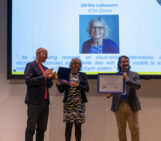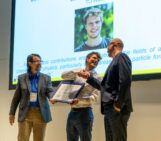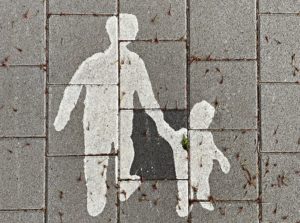
Children pave the way to the future, but the parents need support. [credit: Suzi Kim at Unsplash.com]
Having two full time jobs
Many of the scientists we interviewed feel like they have two full-time jobs. Dr Bramha Vishwakarma, a researcher in both the UK and India, summarises many of the responses we received: ‘Being an academic is hard, being a parent is harder, and being both together is super tough, especially when you and your partner are both early career researchers’. ‘Vacation is not a restful time, but it just means you have one job instead of two’ continues Dr Jan Lenaerts, at Colorado University. Many respondents spoke of working until the late hours to ‘catch-up’ with their peers or keep abreast of the latest publications. ‘The boundaries between work-days and weekends have completely disappeared’ explains Dr Nir Galili from ETH Zurich. When asked about whether being a parent had affected their work, the majority said that it had negatively affected their work and that this was having an impact on other aspects of their lives. ‘Not being able to work as much as I used to [before my daughter was born], certainly has increased my stress levels ’ says Dr Paula Koelemeijer, based in London, UK.
Unlike many other jobs, where a position may be temporarily filled when someone is on parental leave, parental cover in research and academia is rare. Therefore, many researchers feel the need to continuously work through parental leave, sick days and holidays. Dr Rebekka Steffen, based in Sweden, has experienced this. ‘When my friend’s child is sick, they take a day off and are not expected to work. When my child is sick and I stay home, I still try to get as much done as possible. So, scientists handle both “jobs” at the same time’. With very young children, especially those in day care, sick days come often. ‘The combination of sick days with actual vacation days leaves approximately 8 months of real work time per year, which is a huge difference to the 11 months that many non-parents work’, continues Rebekka.
However, there are also positives of working in research whilst being a parent. Often, hours can be flexible and there are few strict deadlines. Dr Anna Klos in Poland explains that she sees academia as being parent-friendly as ‘we have flexible working hours, so we can leave when we need to and work in the evenings’. Being able to take vacation throughout the year is also a positive for many (although those with teaching duties may not be able to take advantage of this). ‘The elements of academic freedom give us a relatively privileged position’ says Dr Andreas Fichtner from ETH Zurich.
The three Cs: Covid, careers and children
Whilst the last two years have been difficult for all of us, the Coronavirus pandemic provided additional complications for parents. Many parents were faced with home-schooling their children and forced separation from support networks such as grandparents and day care. For some, this was compounded by the arrival of their child. Dr Adam Mangel, a hydrogeologist in the USA, had his first experience of fatherhood at the start of the first COVID lockdown. ‘Whilst that was a unique experience, it was also an additional weight’ he explains. There were many unknowns surrounding COVID, such as unemployment worry and not knowing how long it would last (let’s face it, we still don’t know), which led to Adam taking less parental leave than he initially planned to. ‘We wanted to save as much money as possible and with my wife also on maternity leave, I decided to go back to work earlier’.
For those with older children, such as Dr Eleanor Bash in Canada, home-schooling was a challenge. ‘Doing creative work with a kid at home who needs supervision in their schoolwork was nearly impossible for me’ she explained. Similarly, Dr Jennifer Bonin in USA says that COVID was a ‘disaster for working parents’, as home-schooling children did not mean a break from her usual working hours. In some cases, supervisors and managers provided more flexible working hours. But in other cases, it meant taking a pay cut or using vacation time. Numerous parents that we spoke to have a vulnerable child, partner, or family member, which created additional anxiety and worries.
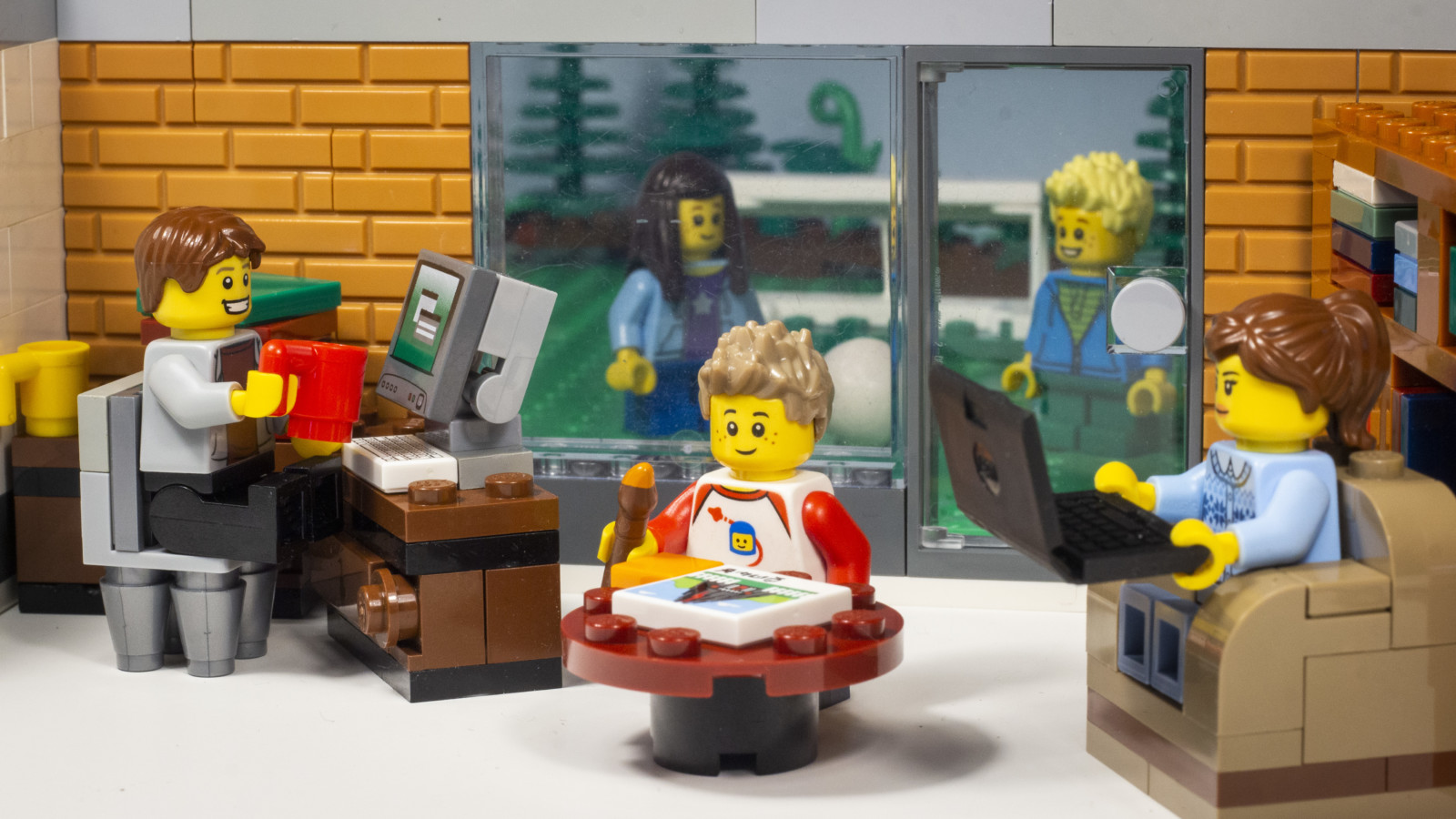
Three kids, two working parents and one desk. The reality of many in the last two years. [credit: Stacy Phillips via Twitter]
A feeling of guilt
Numerous parents expressed their feelings of guilt, both for leaving their families and for putting their careers on the backburner. When offered the experience of travelling for conferences, fieldwork or invited talks, many question whether they want to leave their child with their partner or family. Simultaneously, when turning down these invitations, many feel guilty about how this might impact their career. ‘I would love to work part-time and spend more time with my daughter’ says Dr Paula Koelemeijer, ‘Instead I feel either guilty about this or about not working enough’.
An additional avenue of guilt is expressed by mothers who want to attend events and be active in discussions so that women are represented. One scientist said that she feels additional guilt in turning down an invitation when she is the only woman on the panel/project. This guilty feeling ceases when organisers actively invite minoritized genders. You can read more about the unequal impact of parenting in academia here.
At the EGU General Assembly, childcare is available for scientists attending the conference all week (but not for those only attending for a day – read these blog posts about EGUs physical childcare and advice when attending virtually). This allows parents to attend the conference and make important collaborations whilst knowing that their child is being cared for. However, the switch to virtual conferences due to the COVID pandemic, left many parents trying to juggle attending a two-week conference whilst also raising and educating their children.
A good support system is key
One of the defining features of a career in research and academia is the high likelihood of moving away from your hometown and support system. The importance of having a support system was mentioned by almost all parents. The lack of a support system due to living in different locations, or due to COVID restrictions, was a difficulty for many. Often friends and colleagues became this support system when family were not nearby. Dr Bramha Vishwakarma advises: ‘Share your struggles with your colleagues and friends. People around you are mostly supportive, they are not judging you and they will offer the much-needed help.’ Helpful colleagues were a theme across many scientists we spoke to. ‘My colleagues assist me with work experiments and small things, if I have to stay home to look after my child. There is the option for people to donate their excess vacation days to those who need it at my work.’ says Dr Adam Mangel.

Trying to keep your head above water… or work. [credit: Paxabay via Pexels.com]
Support from unions and other organisations is crucial for parents to balance their career and family life. Dr Rebekka Steffen explains that her child has attended several conferences with her. She has previously shared parenting duties with her academic partner, asked friends to help, and had support from family who took vacation. ‘They enjoyed time with our son whilst also being able to visit a new place’. Rebekka plans on using the childcare facilities at EGU22. Dr Jan Lenaerts had a similar experience at the American Geosciences Union (AGU) in 2018. His wife attended the conference, and his child could make use of the day care facilities. However, he concludes that ‘I don’t think we would do it again’.
Parental Leave and Financial Support
The amount of time off (either paid or voluntary) varies greatly. On the positive end of the spectrum is northern Europe, e.g. Sweden, where paid leave for both parents is longer than in other locations. Dr Rebekka Steffen says ‘I took about 14 months for the first kid and up till now around 10 months for the second one. The Swedish system is great as we can take a lot of time off where we get up to 80% of our salary. The dads also have to take at least 3 months of parental leave.’ Similarly, Dr Anna Klos in Poland was provided with 8 months of parental leave at 80% of her usual salary.
On the other end of the spectrum, some parents in the USA told us that they had to use vacation days, Christmas and unpaid leave to ensure they had enough time off with their new-born. Dr Jennifer Bonin tells us that she was provided with just 3 months maternity leave, but this also used up her allotted sick leave. ‘You can still get sick after having a baby, so this is dumb’. Sometimes, it is at the discretion of the employer or manager to provide additional time off. Dr Jan Lenaerts told us that his employer allowed him to take four months fully paid, which was a beneficial experience for him and his child. However, he highlighted the inequality in such systems; ‘as a father I didn’t have to recover from pregnancy, birth, breastfeeding, and many other unique and hard parts of motherhood, which are not reflected in the policies of my employer, as everyone is treated equally.’ Parental leave time and money also varies for mothers and fathers. In Switzerland, fathers are officially allowed just two weeks of full-paid leave, which Dr Andreas Fichtner calls ‘ridiculous’.
For example, in the UK both Dr Paula Koelemeijer and Dr Grace Nield took multiple weeks of annual leave in combination with maternity leave (although not all fully paid). Whilst these situations are supported by both the university and the funding agencies, it can create administrative problems when fixed-term contracts are not extendable or can’t cover the full costs of parental leave.
It is not only financial support that helps raise a family, but also societal support. Dr Nir Galili tells us that he raised his daughters in Israel, where society recognises the ‘key role that children play in its culture and is aware of what it takes to raise kids and is usually tolerant of child-related absences’.
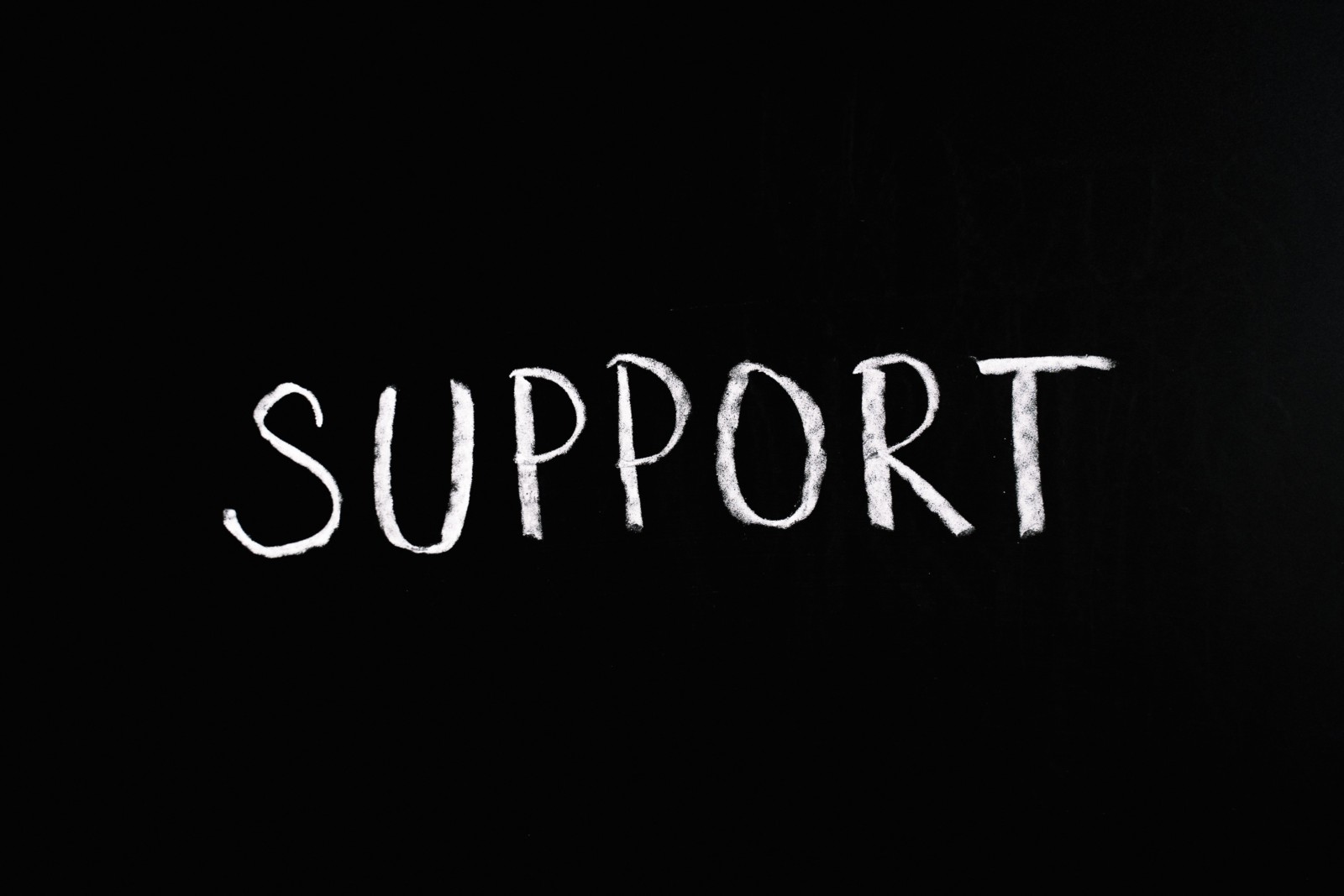
The most frequent word used by the scientists was ‘support’. [credit: Anna Tarazevich via Pexels.com]
Mental health challenges
Whilst some parents said their mental health was not affected or was positively impacted by having children, the majority responded negatively. Some also clarified that it was difficult to separate which aspect of their current situation (working, parenting or life during a pandemic) had the biggest impact on their mental health. Those with pre-existing mental health issues said that they had felt the biggest decline in their mental health since having children. Many respondents also mentioned ‘imposter syndrome’, whereby people doubt their skill and ability, and how this was compounded especially by reduced time to work with having children. Dr Eleanor Bash feels like she doesn’t have the ability to be as ‘productive as her peers’ since becoming a parent, and this has affected her mental health.
Advice to new or soon-to-be parents
One positive aspect that parents reported was the amount of advice and support that other parents provided. So, what advice do they give? Being kind to yourself and forgiving yourself were two key themes from many parents. It takes time to learn how to juggle parenting and research, and you will make mistakes but that is part of the learning process. Many parents praised their support network, partner and families and advised that sharing duties is key, and you should set clear boundaries and roles with partners. However, many were also aware that this is not always possible in the case of single-parent families or those far away from relatives. In this case, many said that childcare providers and babysitters were invaluable.
Including parental leave on your CV and annual reports can help manage the expectations of employers and highlight the amount of time it really takes to raise a human. You may be eligible for extensions of deadlines, such as your early career status, which can give you additional years of eligibility for grants and awards. Some parents were able to negotiate additional salary for childcare costs or ask for flexible working hours to accommodate parenting.
Finally, some advice that all researchers and scientists should hear, regardless of child status, is to stop comparing yourself to others. Whether those are your child-free peers, mentors or non-researcher parents, everyone progresses at a different pace and has different priorities and privileges.
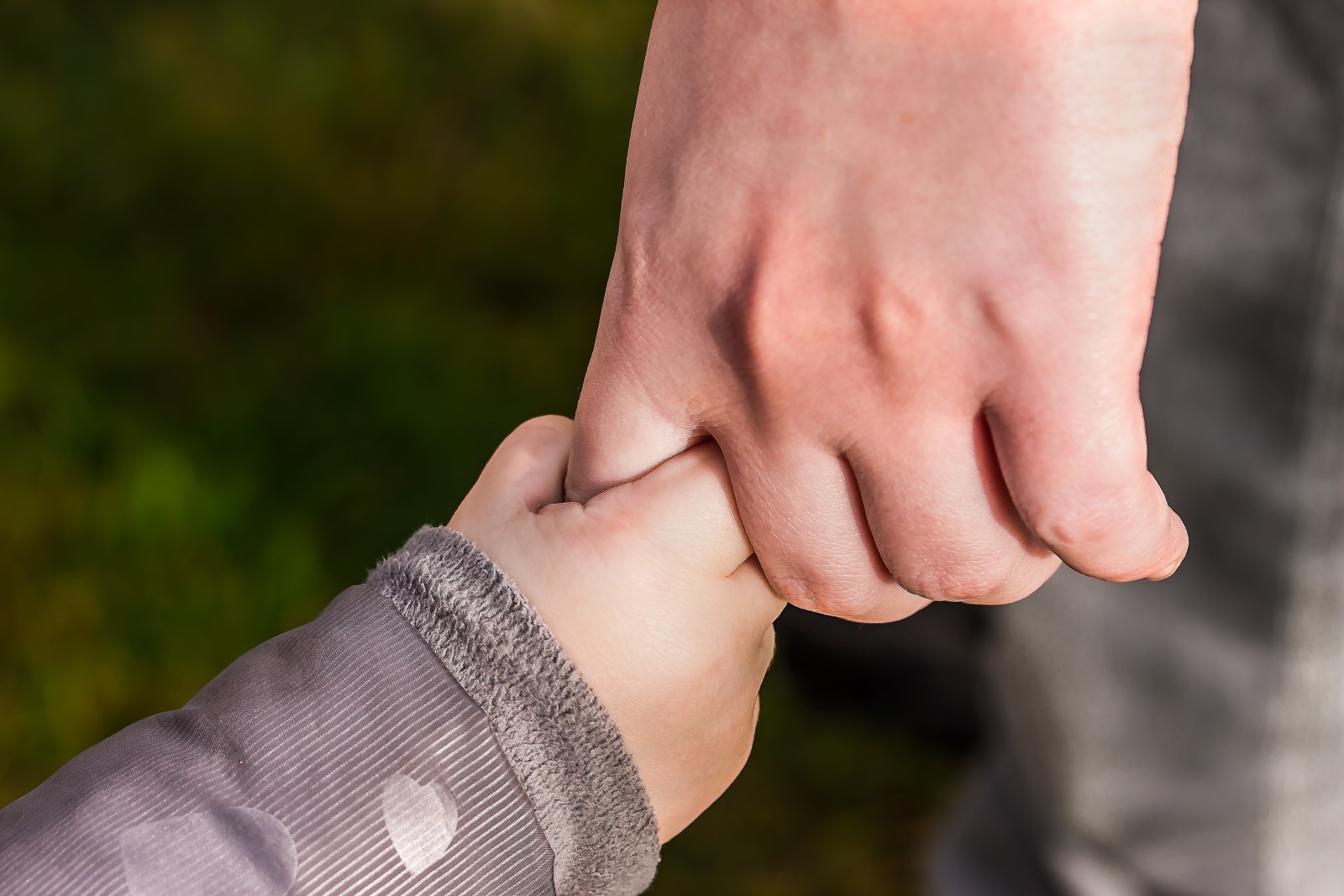
The time it takes to raise a child can be underestimated by those without children. [credit: Picabay via Pexels.com]
What can organisations and institutions do better?
Advice and support from peers may help with day-to-day parenting, but the real change needs to be initiated at higher levels. Increased full-paid parental leave, with a fairer split for mothers and fathers is key. Whilst this is a big (but needed) step forward, it will actually take governments to organise such changes. On a smaller scale, managers and supervisors should be given training on how to support parents. Institutions should provide parents (especially mothers, who often take more time away from work) with possibilities to progress their career and allow additional sick leave and lower research output. When childcare is provided at conferences and events, this should not be limited to those attending the full conference, but be more flexible. More universities and institutions should provide on-site or discounted childcare. The pressure that parents feel with not producing the same output as others or to their pre-child self needs to be reduced. The focus on meritocracy, publications and success stories in research is beneficial to nobody except the companies making money. Dismantling the system will take all of us.
After all, the next generation are currently your children!
Huge thanks go to all the named scientists/researchers within this blog, but also to the many who wished to remain anonymous or spoke more generally about their experiences on social media.
Edited by Maria Scheel
This blog was written by members of the EGU work-life balance and careers/jobs working groups. We hope to raise awareness of many issues facing parents and spark a discussion surrounding what EGU and other organisations and institutions can do better to support all scientists.
This post will appear at several division blogs.
Further reading
Sometimes, we can find some feeling of being heard and sharing struggles, such as with these twitter accounts:
Can I just get a few more hours in the day or days in the week or something? What? No? That’s not possible? But but pic.twitter.com/Y4DSh70bPT
— Academic Mom, PhD (@Momademia) January 6, 2022

